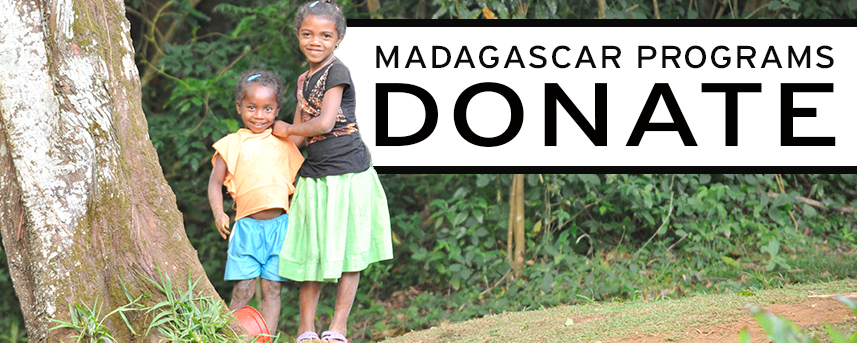By Emilien Razafindrabozy, Rostella Christine, Melsa Stephania Razafindrasoa, and Nestorine Manantenasoa, Centre Universitaire Regional de la SAVA (CURSA). Translated by James Herrera, Ph.D., Program Coordinator for DLC-SAVA Conservation. Published February 23, 2021.
Globally, women are essential to the agricultural workforce. Despite this, they are underrepresented in opportunities such as education and formal training, loans and subsidies, and they have minimal rights to land (1). The problem is causing greater disparities in health and socioeconomics among genders, and has repercussions in food security, poverty, and public health. In Madagascar, women have less access to land than men, typically receive less education or business training, and are underrepresented in extension services. Women need more development opportunities to close the gender gap, which will have cascading effects in improving other aspects of sustainable livelihoods (2).
Agriculture is a significant cause of deforestation and climate change across the globe. In places like Madagascar, people practice traditional techniques such as shifting agriculture for rice, beans, corn, cassava, or other annual crops. There are many agricultural opportunities in Madagascar, especially the northeast SAVA region. It is tropical with long wet, hot seasons and short dry seasons. Many crops can grow well here, including the most important foods like rice, beans, bananas, as well as cash crops like coffee, cloves, vanilla, cacao, and ginger. We also have many fruit trees like mangos, coconuts, lychees, avocados, papayas, citruses, and more. Despite these opportunities, many farmers have not maximized their productivity. For example, most farmers grow only rice or vanilla. They grow rice to feed their family, but often it is not enough for the whole year. Profits made from the sale of vanilla, typically less than USD 6,000 per year (3), are used to buy rice in the lean season, to pay school fees for the children, or to make improvements on the home. Vanilla prices are extremely volatile, making it an unpredictable income source. There is an untapped opportunity for agricultural diversification that can also lead to income diversification, while decreasing the pressure on natural resources such as forest and soil.
The university in SAVA (Centre Universitaire Regional de la SAVA, CURSA) has developed an Agronomy department with the goal of teaching sustainable agriculture as well as agribusiness entrepreneurship. Through a collaboration with the Duke Lemur Center SAVA Conservation, we have been leading workshops to train farmers about agroecology (4). Agroecology is an interdisciplinary field that merges concepts in ecology with application to agriculture for more sustainable farming. We teach about market vegetable farming with diverse and nutritious foods like beans, green leaves, ground fruits, tubers, and more. We also teach about agroforestry, planting trees in the agricultural landscape for multiple benefits including diversified crops, improving soil fertility and water management, as well as promoting on-farm biodiversity. Thus far, we have reached over 150 farming families in six villages. Some farmers have reported 100% increases in yields of both food and cash crops using the agroecology techniques, compared to plots using traditional practices. These results are especially encouraging because these early adopters are now teaching their families and their neighbors, spreading the skills throughout their communities.
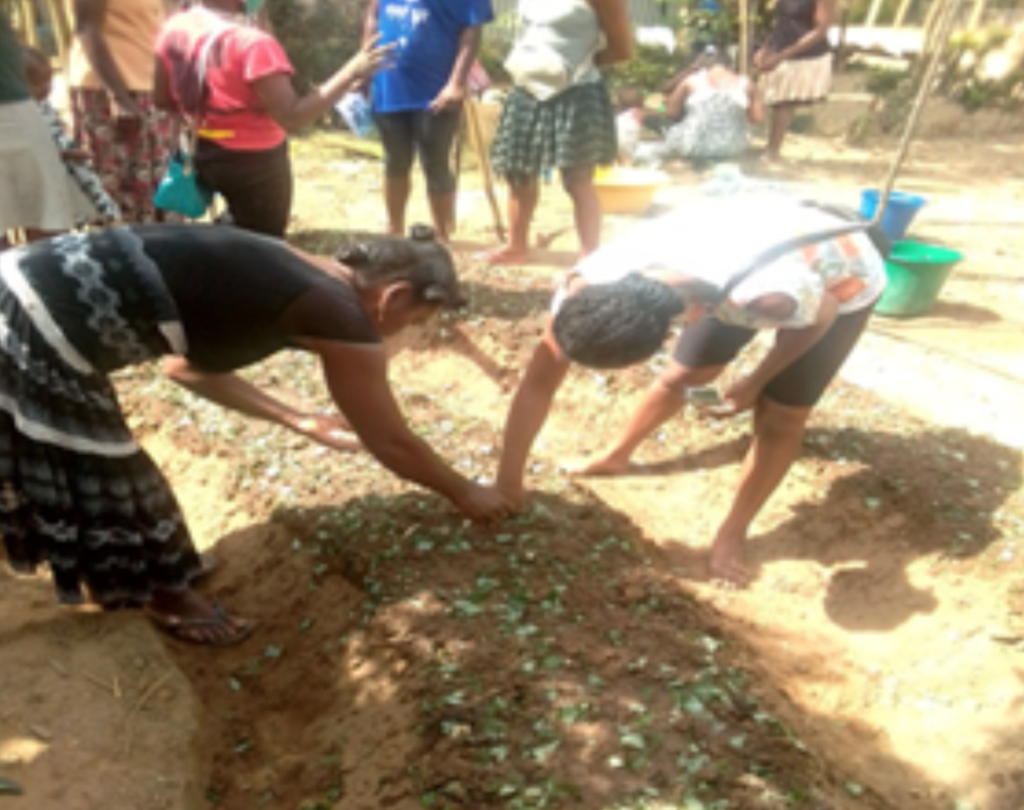
Two women plant beans together in their newly amended garden beds. We use beans as a cover crop to initiate the regeneration of soil, before planting our target crops such as vegetables and green leaves.
Though we strive to create an inclusive space for both women and men, young and old, we have seen that there are many obstacles which preclude women from participating in such workshops. Women have many chores at home, including cooking, cleaning, caring for young and elderly, and fetching water. They often cannot leave their home for a full day to participate in educational events because there would be no one to tend the home. In addition, men in Madagascar tend to be more outspoken and dominate social situations with mixed genders, while women tend to be quiet and reserved, reluctant to voice an opinion in the presence of men (2).
To overcome some of the barriers women face, we initiated a series of workshops focusing only on women. We recruit from existing women’s interest groups, as well as the family and friends of female participants from previous workshops. The team of trainers include ourselves as the DLC-CURSA Agroecology Extension Interns, as well as selected female trainers from each village who have proven during evaluations to successfully implement the agroecology techniques.
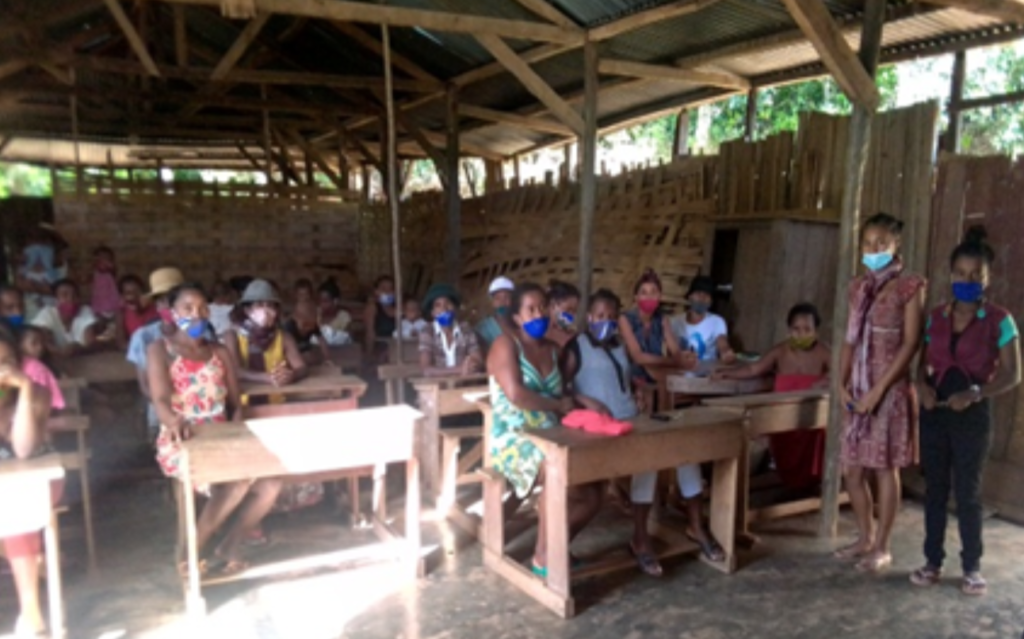
During preliminary visits to each community, we hold participatory appraisal meetings with the women to understand their goals and the challenges they face in agriculture. This allows us to recruit the women truly interested in the workshop, as well as create a targeted place-based approach with each community.
Thus far, we have conducted workshops at two target communities with 70 participants. The women engage in hands-on demonstrations to create model home gardens. They practice techniques like making compost from locally-sourced materials, amending soil with the compost they create, covering the soil with mulch and cover crops, and designing the garden to capture rainwater run-off. All these methods can be performed easily with free, local materials, and can be done in a small, unused corner of their yard. We provide notebooks and pens so women can take notes, and guide women in creating a garden diary to track their work and yields. Women also receive starter-packs of seeds including beans, greens, and other vegetables. We teach about crop rotation and distribute calendars specific to SAVA region to promote rotation in relation to the appropriate seasons.
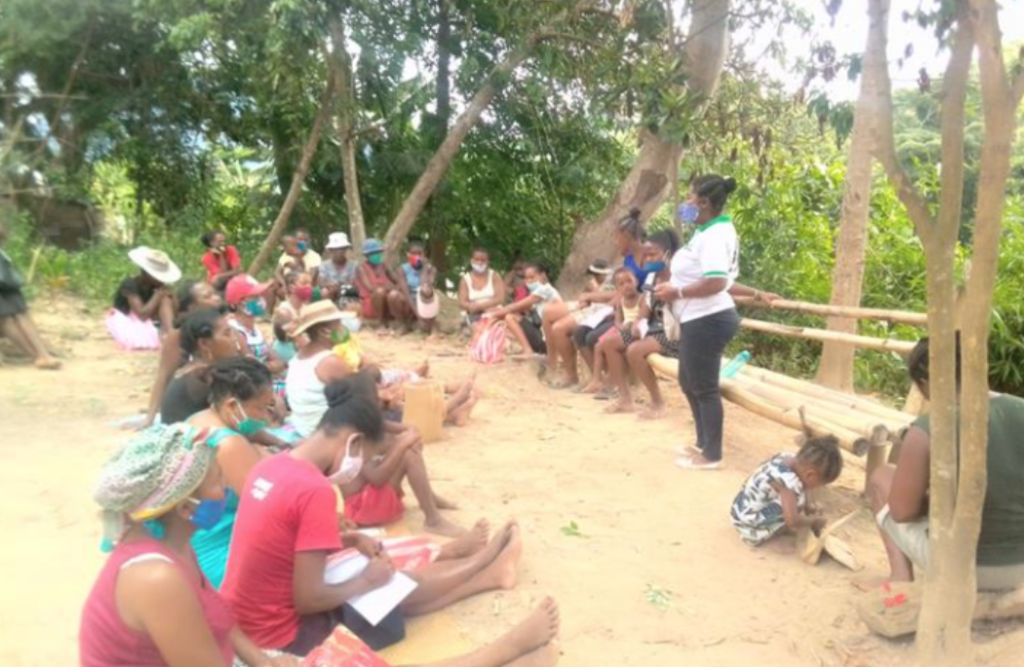
Nestorine (standing) has a master’s degree in nutritional health. We combine the agroecology training with an information campaign about hygienic, nutritious, and diversified diets. We emphasize the value of colorful vegetables and a balance of plant-based foods that are protein- and iron-rich. Nestorine plans to pursue a PhD and aspires to combine the workshops with research and development that can improve the nutritional health of mothers and infants.
Our goal is to develop a network of women who engage with agroecology principles and practices. Through this network, we want to create a cooperative of women farmers who can be certified and market their produce as organic, sustainable, and improving the livelihoods of women in the countryside. Through these efforts, we can meet our sustainable development goals for closing the gender gap, ending hunger and poverty, and safeguarding biodiversity.
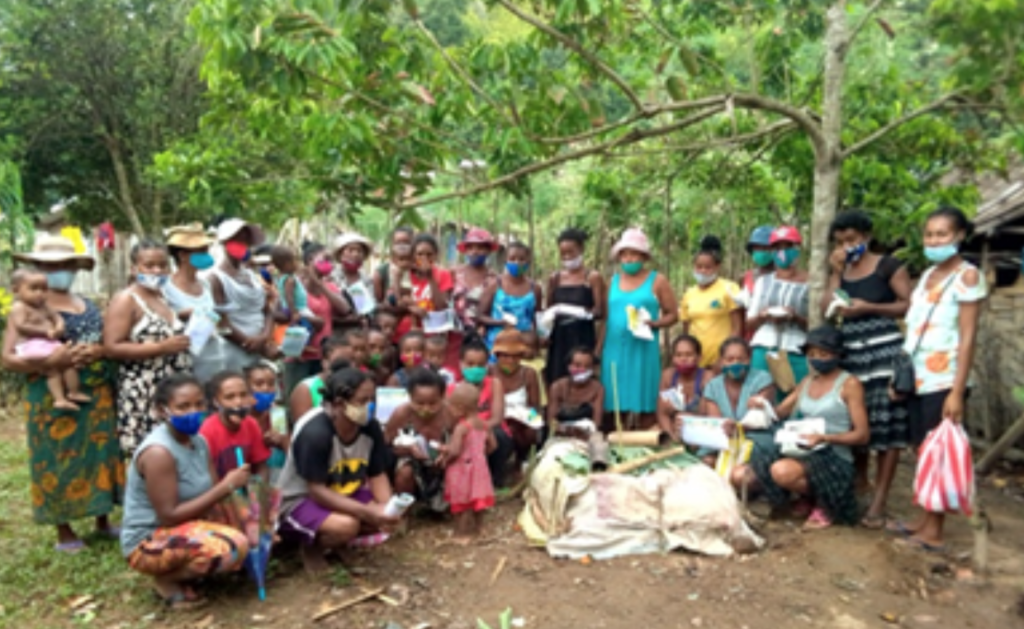
Women’s group at Manantenina village (Andapa district) after receiving seed starter-packs and cropping calendars. The women also proudly display their new compost pile (center), protected by scrap materials in the neighborhood.
We greatly appreciate the support of the Duke Lemur Center in achieving our sustainability goals. We have received valuable training through the DLC programs, which allows us to continue to serve our communities. We thank all the DLC supporters, especially the General Mills, for making this project possible.
1. https://farmingfirst.org/women_infographic/
2. https://www.ajol.info/index.php/mcd/article/view/122210/111691
3. https://link.springer.com/article/10.1007/s10021-020-00586-5
4. https://lemur.duke.edu/sava-agroecology-workshops/

